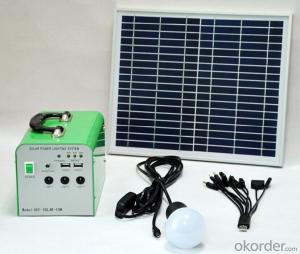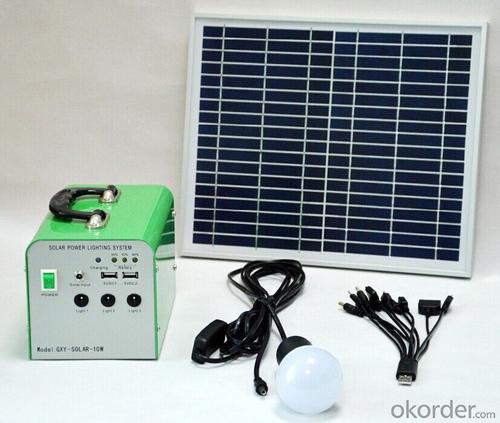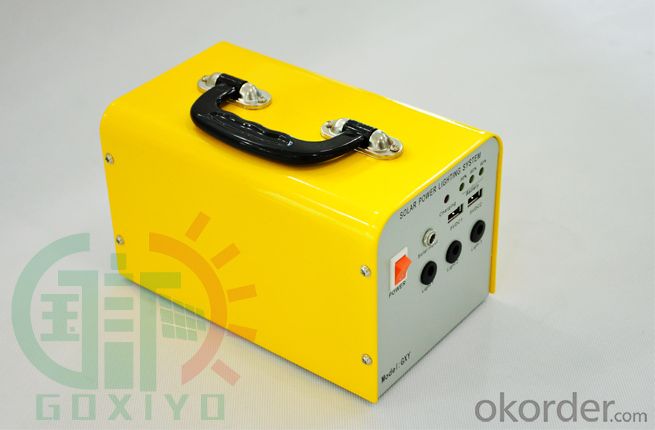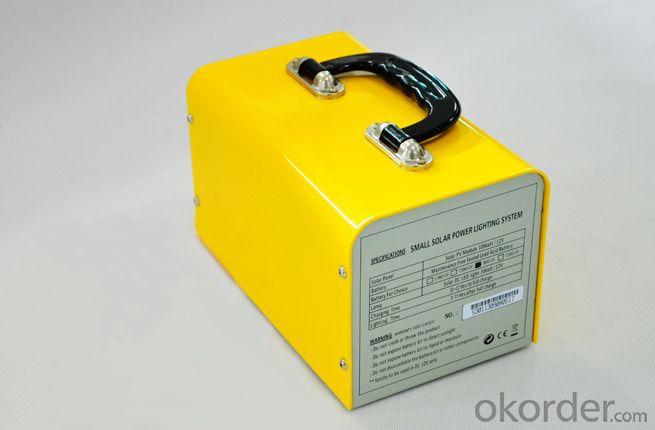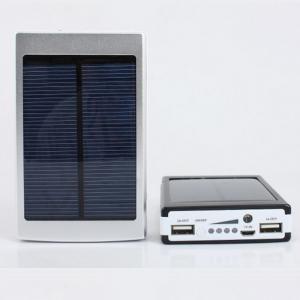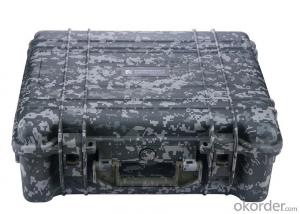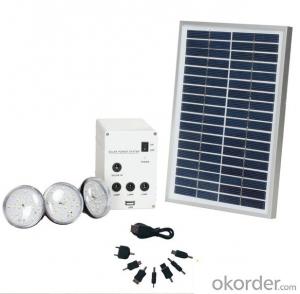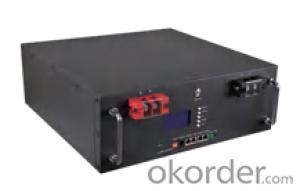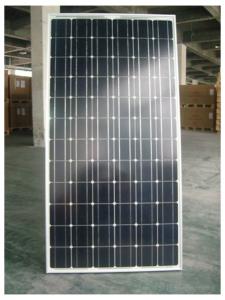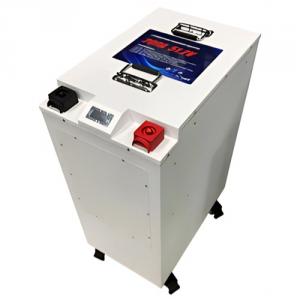10W Industrial Solar Energy Systems Small Charge Box for Solar Power Generation
- Loading Port:
- Shekou
- Payment Terms:
- TT OR LC
- Min Order Qty:
- 1 set
- Supply Capability:
- 9999 set/month
OKorder Service Pledge
OKorder Financial Service
You Might Also Like
Quick Details | ||||
Place of Origin: | Guangdong, China (Mainland) | Brand Name: | HYTN | |
Model Number: | HYTN-SMP10 | Output Voltage (V): | 12 | |
Specification: | Normal | Application: | Home | |
Work Time (h): | 24-26 H | Load Power (W): | 3w | |
Solar Power (W): | 10w | Work Time (h): | 24-26 H | |
Name: | 10w grid solar system | Other name: | new style 10w grid solar system | |
Solar Panel: | 10W 18V | Battery: | 7AH 12V | |
USB Connector: | 5V 2000MA | DC output: | 12V 1500MA | |
LED lamp: | 3w | DC Cable: | 5 meter DC cable, 5.5*2.1mm | |
Charging time: | 5-7 H | Working time: | 24-26 H | |
Packaging & Delivery | ||||
Packaging Details: 10w grid solar system Packing: 395MM*187MM*170MM, Carton box 7.5KG | ||||
Delivery Detail: 15~20 days | ||||
Specifications | ||||
10w grid solar system | ||||
Product Description | ||||
Specification of 10w grid solar system: | ||||
Solar Panel | 10w, 18v, High efficiency polycrystalline solar panel, with 25 years working life time, framed with strong alluminum alloy, easy to carry around. | |||
Battery | 7AH,12V,Sealed maintenance-free lead-acid battery | |||
USB Connector | (5V,2000MA),2pcs, work with cell phone, MP3,MP4,MP5 etc | |||
DC output | (12V,1500MA),could drive 12DV fan or other DC devices. | |||
Shell | 1.0mm thickness iron box coated | |||
LED lamp | 3w high effiency energy saving LED bulb. | |||
Battery Display | LED display showing battery volume | |||
DC Cable | 5 meter DC cable, 5.5*2.1mm. Connecting solar panel with power bank and 5 meter cable, 5.5*2.5mm,connecting LED lights | |||
Mobile Charging Cable | Various most commonly used USB charging adaptors for you to charge all kinds of mobile phones | |||
Charging,Using Time | 5-7 hours charging time,24-26 hours working time with 3w LED | |||
Accessories | 1 power bank, 1 solar panel with 5 meter cable, 1 3w LED bulb with 5 meter cable, multi-adaptor USB cable, 1 copy of manual. | |||
Packaging | 395MM*187MM*170MM, 7.5KG | |||
Range | Camping, power back-up, hunting, fishing, Charging mobile phones, lighting home and other outdoor activities. | |||
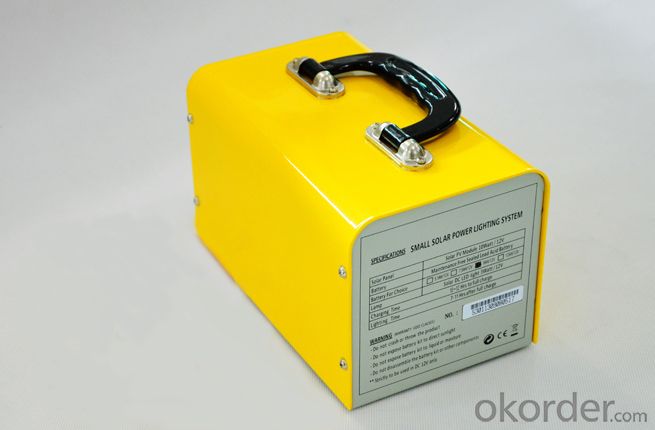
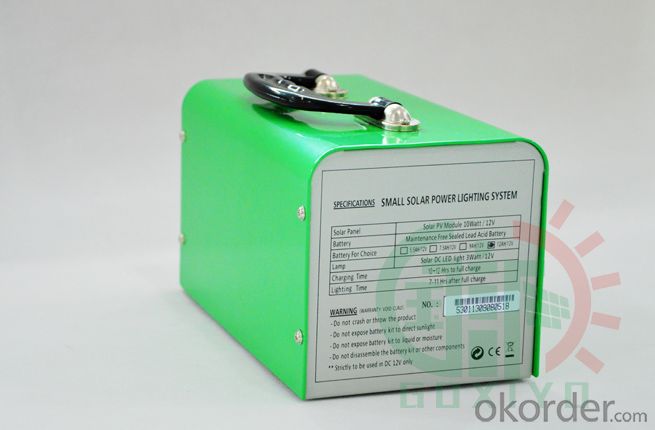
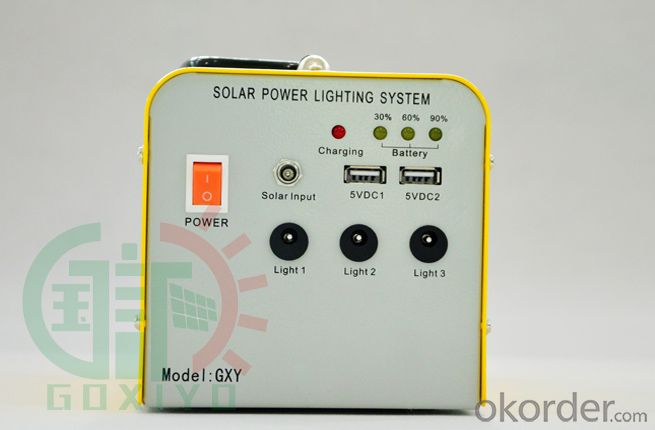
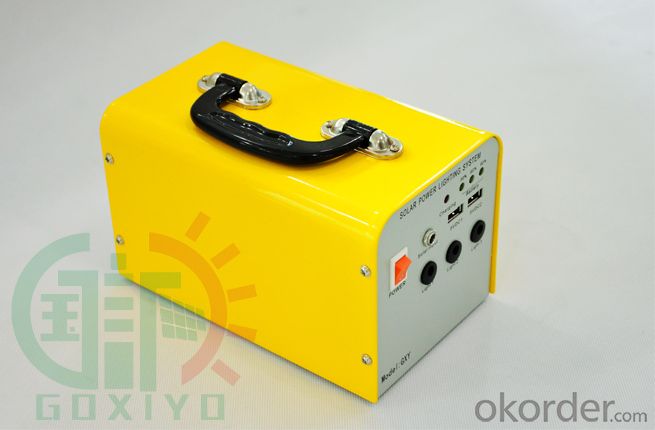
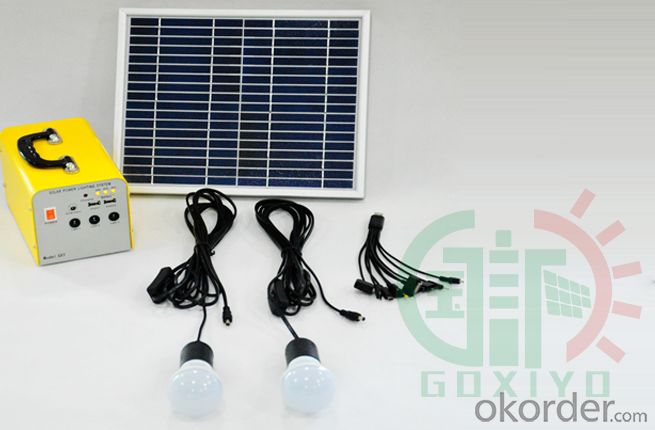
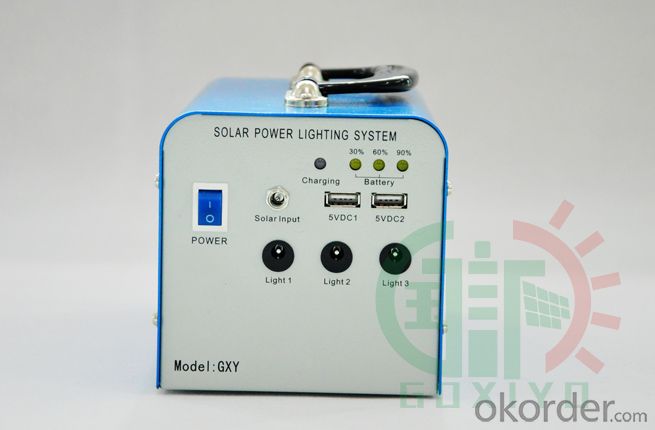
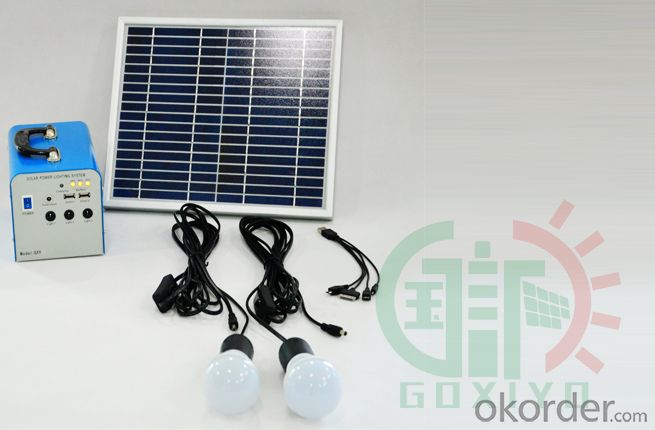
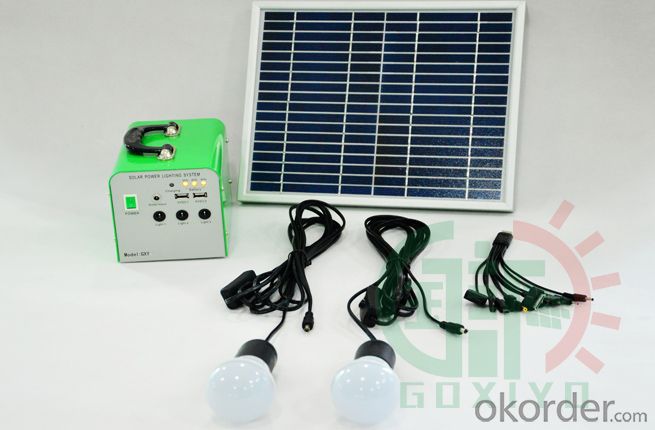
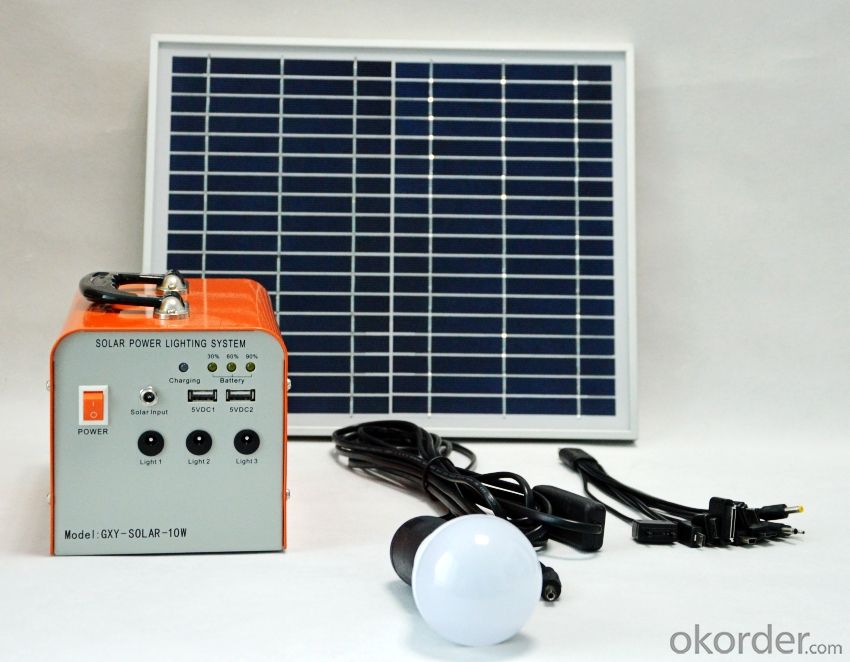
- Q: What are the environmental impacts of solar energy systems?
- Solar energy systems have several positive environmental impacts. Firstly, they produce clean and renewable energy, reducing the reliance on fossil fuels and decreasing greenhouse gas emissions. Additionally, solar panels do not emit any pollutants during operation, contributing to improved air quality. However, the manufacturing process of solar panels can have some environmental impacts, including the use of certain materials and energy-intensive production. Nevertheless, when considering the entire lifecycle of solar energy systems, the environmental benefits far outweigh the potential drawbacks.
- Q: Can solar energy systems be used for powering water treatment plants?
- Certainly, water treatment plants can utilize solar energy systems. Indeed, solar power is increasingly being employed as an eco-friendly and economical solution for powering various industrial processes, including water treatment. Photovoltaic (PV) panels can harness solar energy to generate electricity, which can then be utilized to operate the water treatment plant. Using solar energy for water treatment plants offers several advantages. Firstly, solar power is a plentiful and renewable energy source, meaning it does not deplete natural resources and is widely available. This makes it an exceptionally sustainable choice for powering water treatment plants, particularly in regions with ample sunlight. Additionally, solar energy systems have a minimal environmental impact compared to traditional fossil fuel-based power sources. They do not produce any greenhouse gas emissions during operation, thereby reducing the carbon footprint of the water treatment plant and contributing to overall environmental preservation. Moreover, solar power can provide a dependable and consistent energy source for water treatment plants. Advancements in energy storage technologies, such as batteries, enable excess energy generated during the day to be stored and utilized during periods of low sunlight or high energy demand. This ensures a continuous and uninterrupted power supply for the water treatment plant, even in cloudy or nighttime conditions. Furthermore, solar energy systems can significantly decrease operating costs for water treatment plants. Once the initial investment in solar panels and associated equipment is made, the operational costs become minimal. This is due to the fact that sunlight, the fuel for solar energy, is free. Consequently, the reliance on expensive and limited fossil fuels for electricity generation is eliminated, resulting in long-term cost savings for the water treatment plant. In summary, solar energy systems are a suitable and efficient option for powering water treatment plants. They offer numerous benefits, including sustainability, environmental friendliness, reliability, and cost-effectiveness. As the world continues to prioritize renewable energy sources, the integration of solar power into water treatment plants will likely become increasingly prevalent.
- Q: Are solar energy systems suitable for residential properties?
- Yes, solar energy systems are suitable for residential properties. They are a clean and renewable source of energy that can provide electricity for homes. Solar panels can be installed on rooftops or in yards, and they can significantly reduce or even eliminate the need for traditional electricity from the grid. With advancements in technology, solar energy systems have become more efficient and affordable, making them a viable option for homeowners looking to reduce their carbon footprint and save on energy costs.
- Q: How does the location of a solar energy system affect its performance?
- The location of a solar energy system significantly affects its performance. Solar panels function optimally in areas with abundant sunlight and minimal shading. Regions with high levels of direct sunlight, such as deserts or open plains, are ideal for maximizing solar energy production. Additionally, the tilt and orientation of the panels should be optimized to capture the most sunlight throughout the day. Factors like latitude, climate, and local weather patterns also play a role in determining the efficiency of a solar energy system. Ultimately, choosing the right location can greatly enhance the overall performance and output of a solar energy system.
- Q: Are there any risks of electrical malfunction or failure with solar energy systems?
- Yes, there are some risks of electrical malfunction or failure with solar energy systems. One of the main risks is a faulty or damaged electrical connection, which can result in a loss of power generation or even electrical fires. Additionally, extreme weather conditions such as lightning strikes or strong winds can damage the solar panels or inverters, leading to a temporary or permanent failure of the system. Another risk is the degradation of solar panels over time, which can result in decreased efficiency and eventually require replacements. Furthermore, improper installation or maintenance can lead to system failure or electrical malfunctions. It is essential to ensure that solar energy systems are installed by qualified professionals and regularly inspected and maintained to minimize these risks.
- Q: Can solar energy systems be installed on sloped surfaces?
- Yes, solar energy systems can be installed on sloped surfaces. In fact, sloped surfaces can sometimes be advantageous for solar panel installation as they can enhance the exposure to sunlight and increase the efficiency of the system.
- Q: How do solar energy systems impact renewable energy targets?
- Solar energy systems have a significant impact on renewable energy targets as they contribute to increasing the overall share of renewable energy in the energy mix. By harnessing the power of the sun, solar systems generate clean electricity, reducing the reliance on fossil fuels. This helps countries and communities to meet their renewable energy targets by diversifying their energy sources and reducing greenhouse gas emissions. Additionally, the scalability and accessibility of solar technology make it a viable option for both large-scale projects and individual homeowners, further accelerating the progress towards renewable energy targets.
- Q: Can solar energy systems be used in powering retirement homes or assisted living facilities?
- Yes, solar energy systems can definitely be used to power retirement homes or assisted living facilities. Solar panels can be installed on the roofs or in open spaces of these facilities to capture sunlight and convert it into electricity. This renewable energy can then be used to power various amenities such as lighting, heating, cooling, and appliances, reducing their reliance on traditional power sources and lowering energy costs. Additionally, solar energy systems are environmentally friendly and sustainable, aligning with the growing trend of integrating green solutions in retirement homes and assisted living facilities.
- Q: Can solar energy systems be used for powering electric vehicle research and development centers?
- Yes, solar energy systems can be used for powering electric vehicle research and development centers. Solar energy is a renewable and clean source of energy that can help reduce the carbon footprint of these centers. By installing solar panels on the rooftops or open spaces around the centers, the solar energy can be harnessed and converted into electricity to power various operations and activities. This will not only provide a sustainable energy source but also reduce the dependency on conventional electricity and fossil fuels. Additionally, using solar energy can also help in cost savings in the long run, as the initial investment in solar panels can be offset by the reduced electricity bills. Overall, solar energy systems are a viable and environmentally friendly option for powering electric vehicle research and development centers.
- Q: What is the efficiency of solar energy systems?
- The efficiency of solar energy systems varies depending on various factors such as the type of system, location, and design. On average, solar photovoltaic (PV) panels have an efficiency range of 15% to 20%, while concentrated solar power (CSP) systems can reach efficiencies of up to 40%. However, advancements in technology continue to improve the efficiency of solar energy systems, making them increasingly competitive and viable as a renewable energy source.
Send your message to us
10W Industrial Solar Energy Systems Small Charge Box for Solar Power Generation
- Loading Port:
- Shekou
- Payment Terms:
- TT OR LC
- Min Order Qty:
- 1 set
- Supply Capability:
- 9999 set/month
OKorder Service Pledge
OKorder Financial Service
Similar products
Hot products
Hot Searches
Related keywords
